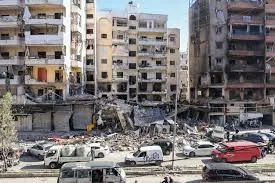
World Bank Estimates Lebanon’s War Recovery Costs
The World Bank has estimated that Lebanon requires $11 billion for reconstruction and recovery following the 14-month conflict with Israel. The assessment, covering ten sectors nationwide, evaluated damages and losses from October 2023 to December 2024. Public financing is expected to fund $3 billion to $5 billion for infrastructure, while private financing is needed for the remaining $6 billion to $8 billion for sectors like housing, commerce, industry, and tourism.
The conflict began with Hezbollah rockets on October 8, 2023, leading to Israeli shelling and airstrikes, escalating into a full-blown war. A U.S.-brokered ceasefire was implemented in November 2024, but tensions continue over Israeli military presence in Lebanon. The war’s economic impact on Lebanon includes a $14 billion loss, with $6.8 billion in physical damage and $7.2 billion in lost economic productivity. Housing was the hardest-hit sector. Lebanon’s GDP contracted by 7.1% in 2024, and by year’s end, the country’s cumulative GDP decline since 2019 neared 40%. The conflict resulted in over 4,000 Lebanese fatalities and widespread displacement and destruction.
In response to the reconstruction needs, Lebanon’s Finance Minister, Yassine Jaber, stated that the World Bank is working to create a $1 billion reconstruction fund. The World Bank will initially contribute $250 million as capital, with donors expected to provide the remaining $750 million.
The conflict also had significant economic consequences for Israel, exacerbating the impact of the Gaza war and straining public finances. The budget deficit increased to approximately 8% of GDP, leading to credit rating downgrades. Inflation rose to 3.5%, above the central bank’s target range, prompting high-interest rates that pressured households. The northern region of Israel suffered long-term economic effects, particularly in tourism and agriculture, due to evacuations and labor shortages.
In Lebanon, cities like Nabatieh began immediate rebuilding efforts following the ceasefire, despite limited government support. Business owners faced significant financial challenges in restoring their establishments, with municipal efforts hindered by resource constraints and safety concerns. The resilience of residents underscores their determination to recover amid adversity